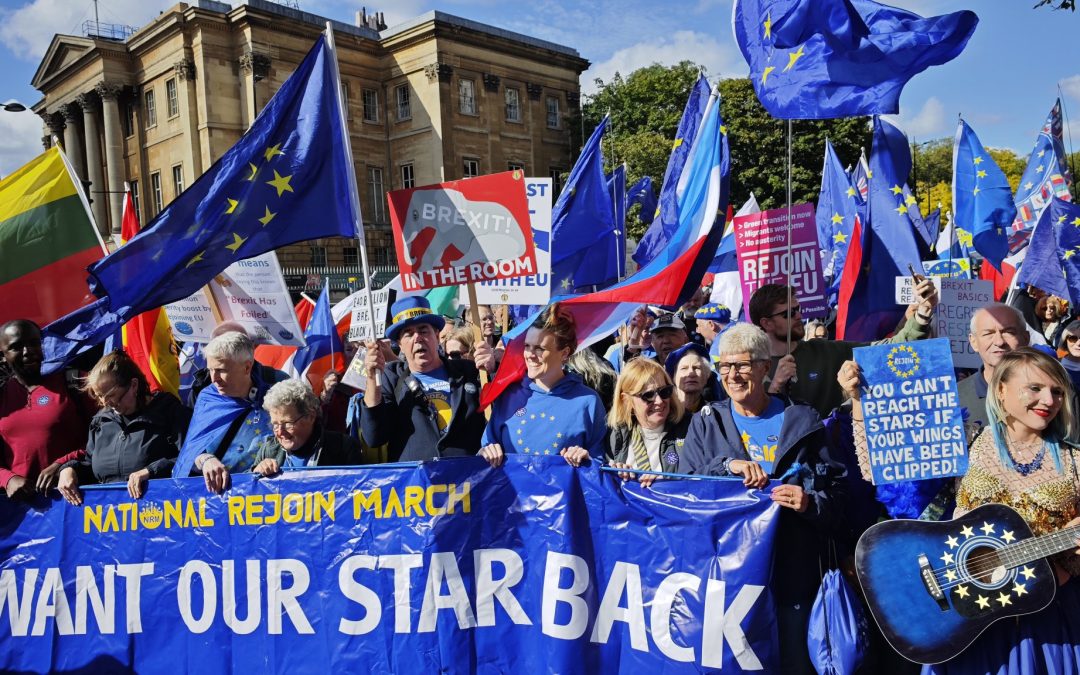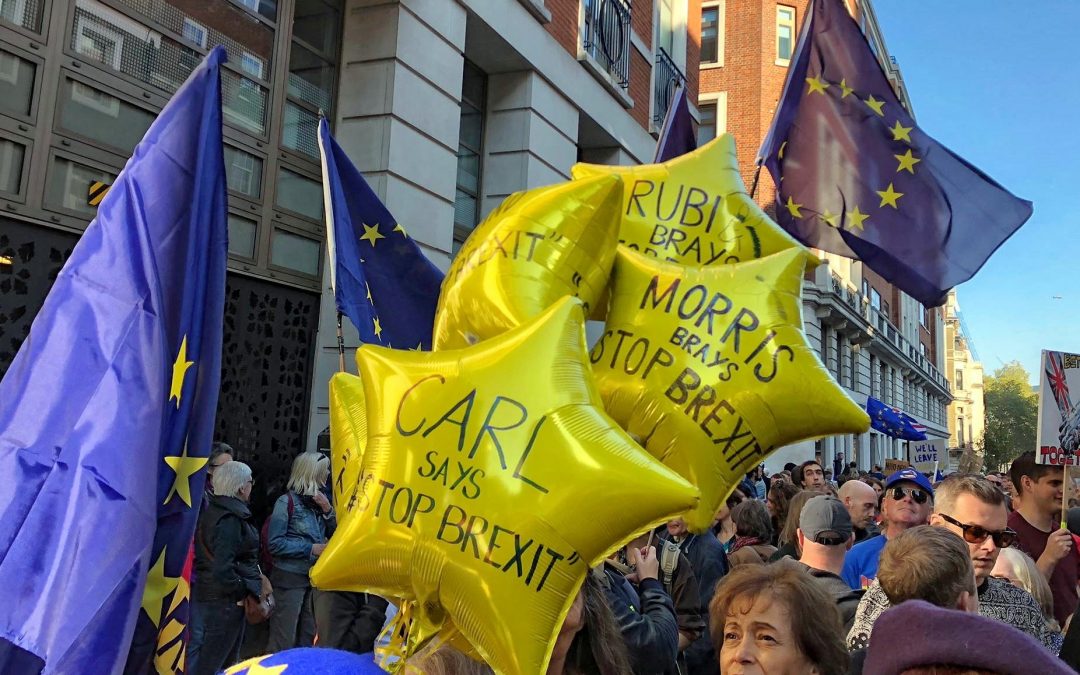
A new APPG for a new era of European engagement
The recent change of government offers hope of a new era for UK/EU relations and the launch of a new APPG, writes Bremain Chair Sue Wilson MBE for Yorkshire Bylines.
When the new Labour government came to power in July, they made the decision not to re-establish the European scrutiny committee. The committee – whose role was to scrutinise new EU laws, schemes and proposals, and the impact they could have on the UK – was now considered surplus to requirements. Thankfully, others had other ideas.
New APPG on Europe
This week a new all-party parliamentary group (APPG) on Europe – co-chaired by Dr Rosenna Allin-Khan MP (Labour) and Lord Kirkhope (Conservative) – met for the first time. The group’s aims are to “discover areas of mutual co-operation and interest” and examine the relationship between the UK and the EU. Whilst they won’t have the authority or status of a parliamentary select committee, they will have a voice, and one that hopefully the government is willing to listen to.
The APPG will meet six times a year, with European Movement UK (EMUK) acting as secretariat. Dr Mike Galsworthy, chair of EMUK said the new group would herald a “fresh new era of European engagement”:
“At European Movement UK, we’re delighted to be the secretariat supporting this important forum. EMUK was founded 75 years ago, in parliament, as cross-party group looking to advance the relationship of the UK with our European neighbours. So, having recently built up our staff team and capacity substantially, coming back to parliament to inaugurate and facilitate this important cross-party parliamentary group feels like both a homecoming and a fresh new era of European engagement.”
Lord Kirkhope said the government’s decision to abolish the European scrutiny committee, and its new approach to UK–EU relations, made the formation of the new APPG “crucial”:
“It will allow us to assess policies as they evolve and apply a positive, pragmatic approach to our relationship with Europe. We’ve bilateral ties with many European countries, but what’s been lacking is a broader, strategic view of our relationship with the EU as a whole. I’m confident this new group will play a key role in offering constructive input and help guide the government and others as we navigate this evolving landscape.”
🔥 Delighted we have a new cross-party group in parliament to scrutinise & build UK-EU relations.
The “All-Party Parliamentary Group on Europe” launched on Tues – chaired by @DrRosena – and I’m proud to say European Movement UK will be the secretariat.https://t.co/PM1fxhe4D4
— Mike Galsworthy 🇺🇦 (@mikegalsworthy) October 24, 2024
The role of the APPG
Unlike parliamentary select committees, APPGs have no official status within parliament but are run by and for members of the Commons and Lords and may involve individuals and organisations from outside parliament. The involvement in this case of EMUK will no doubt ensure that the government’s “reset” of UK/EU relations is closely scrutinised, whether the government is in favour of closer examination or not.
Starting in January 2025, the APPG will meet bi-monthly, with each meeting focusing on a different topic. January’s meeting will focus on collecting evidence regarding security and defence. Future meetings will cover other policy areas including science, technology and trade.
My latest video from the House of Lords pic.twitter.com/WhA7ufpS3u
— Lord Kirkhope (@LordKirkhope) October 16, 2024
“Encouraging sign”
When Foreign Secretary David Lammy recently visited Brussels to meet the council of foreign ministers, Lord Kirkhope said he was “very much encouraged”. Despite the fact that as non-EU members the UK “couldn’t fully participate”, it was a step forward to have been invited at all, and to have attended. Lord Kirkhope described the meeting as an “encouraging sign of a warming of our relationship with the EU” and said “important discussions about the future security of Europe” were being held.
Both the prime minister and the foreign secretary have been keen to point out the improvement in relations with our European counterparts, and the change is most welcome. What is less clear is what the government’s ‘reset’ plan is and how exactly they plan to “make Brexit work”. As Lord Kirkhope said recently, we “still don’t have any clear idea of what their European policy is going to be”. Hopefully, the government knows more than the rest of us.
UK–EU Parliamentary Partnership Assembly
When the Brexit trade and cooperation agreement (TCA) became effective in May 2021, it was supported by an inter-parliamentary institution – the EU–UK Parliamentary Partnership Assembly (PPA) – brought together from members of the UK parliament and the European parliament. With a new European parliament in place, the PPA has since been reformed on the EU side and a new chair, Sandro Gozi, was appointed on 3 October.
On the British side, no action has been taken as yet to appoint new members or to participate. However, Labour ministers have assured Lord Kirkhope that the government is “going to reappoint” and is going to “participate in this assembly”. With the TCA due for review in 2026, hopefully the government will do so soon.
The UK needs more than a ‘reset’
When Dr Allin-Khan was elected as chair of the APPG, she spoke of how the group would “build a positive relationship with our European counterparts, working on our shared interests and values”. Those are sentiments that even our prime minister and foreign secretary would presumably wholeheartedly support. Where they differ, I suspect, is in their willingness to confront the Brexit elephant in the room and to deal with the very real damage that Brexit continues to cause.
Despite changing public opinion and strong economic evidence, the government seems to think they know better than the financial experts warning of ongoing economic harm. Or they know the truth but are too afraid of the consequences of any remedial actions they might take.
Brexit needs to be scrutinised. From the loss of trade to the loss of rights. From the lack of workers to the lack of global authority. From the cost of food to the cost of inaction. The list is endless.
The launch of the APPG is a welcome move that should help parliamentarians and the public better understand and accept the realities of Brexit and the need for prompt action. For those who already understand Brexit yet do nothing, we can only hope that closer scrutiny will force them to ‘reset’ their own thinking and act accordingly in the interests of the country. Before too much more damage can be done.













